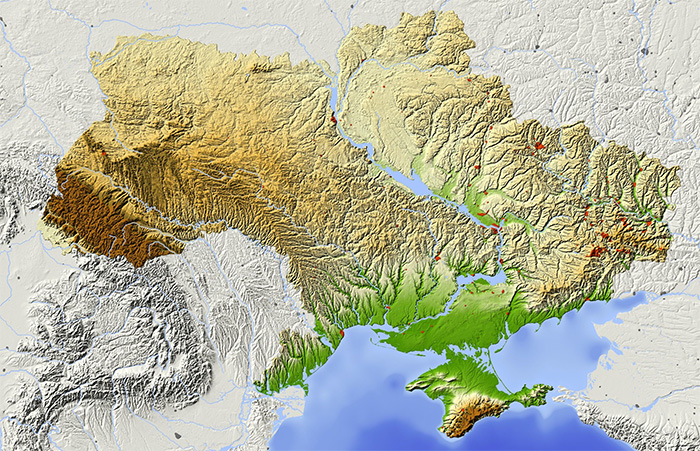
The political crisis in Ukraine is threatening to reverse recent falls in the cost of feed, with wheat prices spiking following the annexation of Crimea by Russia.
Ukraine is expected to be the world’s sixth biggest exporter of wheat this year and the third largest exporter of maize. Despite latest statistics from the Department for Environment, Food and Rural Affairs (Defra) showing that feed prices continued to fall in the final quarter of 2013, the crisis in Ukraine has raised fears that grain supplies may be affected by the Russian intervention.
At the end of February the UK May wheat futures stood at £156 per tonne. By the middle of March, after Russian troops were sent into Crimea, they had hit £170.75 per tonne. Upward pressure on prices is also being caused by dry growing conditions in the United States.
"My prices for April, May and June will be unavoidably higher," said Martin Humphrey of Humphfrey Feeds.
"Wheat prices are way higher than they were in December," he said. Figures released by Defra just before the Ukrainian crisis took hold had shown feed prices falling for a second quarter in a row in the United Kingdom, bringing some welcome, although now, it seems, temporary relief for free range egg producers whose finances had been badly affected by record high feed costs.
Statistics published by Defra in January showed that in the three months from July to September last year poultry feed prices fell for the first time in 18 months. The latest figures showed that prices fell again in the following quarter - from October to December 2013. The price recorded by Defra was also lower than that for the final quarter of 2012, although it was higher than the published figure for October to December 2011.
The falling price of animal feed towards the end of 2013 led to a string of producer price cuts by packing companies. Noble Foods led the way with a five pence per dozen price cut across all grades.
The company said it had deferred the reduction as long as possible but, with ration prices more than £40 per tonne below their peak more than a year earlier, there had been a steady decline in selling prices, it said. Other companies also introduced similar price reductions in response to the falling cost of animal feed, although figures collated by the British Free Range Egg Producers' Association (BFREPA) indicate that many producers are still struggling to make a living.
BFREPA produces monthly costings to show how producers are faring in the current market. The method used by BFREPA for the analysis has been agreed by packing company representatives as well as producers, and the costings show that producers are still losing as much as £1.80 per bird on free range production.
Martin Humphrey said that the importance of Ukrainian wheat was that it tended to set the floor for the market. "Ukraine is a significant exporter of wheat and for the last few years it has been a cheap seller of wheat. If the floor it sets disappears then the price of wheat is higher," said Martin. As for maize, he said that only the United States and Brazil would be bigger exporters than Ukraine, so that any impact on cereal supplies would not be confined to wheat.
There were other implications, too, said Martin. Ukraine was a major supplier of organic wheat and it was also an important exporter of sunflower. "The crisis in Ukraine has certainly firmed prices up in the last few weeks," he said.
The latest official feed price figures released by Defra showed that the average price of poultry feed in the final quarter off 2013 was £274 per tonne - down from £297 per tonne in the previous three months and from £311 in the three months from April to June last year.
The final quarter figure was also down against the average price of £282 per tonne recorded for October to December 2012, although it was higher than the £257 figure for the final quarter of 2011. The average price for the final quarter of 2013 was nearly double the price recorded for the final quarter of 2006.
Recorded prices for all animal feeds were down in the final quarter of 2013, according to the Defra figures. The price of cattle and calf feed was down to £238 per tone compared with £248 the previous quarter, pig feed fell from £274 per tone in the third quarter to £260 in the last three months and sheep feed was down from £256 to £234 per tonne.
The trend is likely to be reversed in coming months, with the ongoing crisis in Ukraine and less than ideal growing conditions in the United States both pushing prices up.
